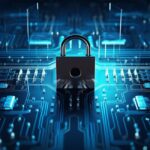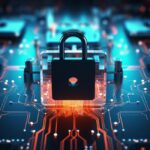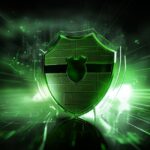In the ever-evolving landscape of technology, the need for robust security measures has never been more paramount. As cyber threats become increasingly sophisticated, the demand for professionals equipped with the knowledge and skills to combat these threats grows exponentially. Enter the course: SEC275: Foundations: Computers, Technology, & Security. Ranked as the third top trending course in the tech industry, this comprehensive program offers a deep dive into the foundational concepts of computer technology and its inherent security challenges. Whether you’re a budding IT professional, a seasoned tech enthusiast, or someone looking to pivot into the cybersecurity realm, this article will provide an in-depth overview of what the SEC275 course entails. From its curriculum highlights to its real-world applications, by the end of this read, you’ll have a clear understanding of why this course is making waves in the industry.
SANS Institute Course SEC275: Foundations: Computers, Technology, & Security
Table of Contents
- Who is SANS Institute?
- Course Overview
- Key Modules & Curriculum Highlights
- Real-world Applications & Benefits
- Who Should Enroll?
- Final Thoughts
- Sources
Who is SANS Institute?
The SANS Institute (SysAdmin, Audit, Network, and Security) is a private U.S. company that specializes in information security and cybersecurity training. Founded in 1989, the institute is known for its world-class cybersecurity courses, research, and certifications. Here’s a brief overview:
Background and History
The SANS Institute was established to provide IT professionals with the skills and knowledge necessary to protect information systems from emerging threats. Over the years, it has grown to become one of the largest and most respected sources for information security training and security certification in the world.
Training and Certifications
SANS offers a wide range of courses covering various aspects of information security, from introductory levels to advanced topics. These courses are often taught by industry experts and practitioners. Upon completing these courses, participants can take exams to earn globally recognized certifications such as:
- GIAC (Global Information Assurance Certification)
- GSEC (GIAC Security Essentials Certification)
- GCIA (GIAC Certified Intrusion Analyst)
- And many others.
Research and Resources
Beyond training, SANS is also known for its research initiatives. The institute regularly publishes:
- Whitepapers: Detailed research papers on various cybersecurity topics.
- Tools: Open-source tools and utilities beneficial for cybersecurity professionals.
- Webcasts: Online presentations on current security topics.
One of the most notable resources from SANS is the Internet Storm Center (ISC), which provides a platform for experts to analyze and report on daily network threats.
Community Involvement
SANS is deeply involved in the cybersecurity community. They host various events, including:
- SANS Conferences: These are held globally and bring together cybersecurity professionals for training sessions, workshops, and networking.
- NetWars: A hands-on cybersecurity challenge designed to test the skills and knowledge of participants in a competitive environment.
The SANS Institute plays a pivotal role in shaping the cybersecurity landscape by providing top-notch training, conducting valuable research, and fostering a community of informed and skilled professionals. Their contributions have been instrumental in elevating the standards of cybersecurity practices globally.
SEC275 Course Overview
SEC275 is not just another tech course; it’s a journey through the intricate world of computers and technology, with a keen focus on security. The course is designed to equip students with the foundational knowledge of computer systems, the underlying technology that powers them, and the security measures necessary to protect data and infrastructure. With a blend of theoretical knowledge and practical exercises, students are prepared to face real-world tech challenges head-on.
Key Modules & Curriculum Highlights
- Module 1: Introduction to Computer Systems
- Basics of computer architecture
- Hardware and software components
- Module 2: Networking Fundamentals
- Network topologies and protocols
- OSI model and its significance
- Module 3: Basics of Cybersecurity
- Threat landscape and common vulnerabilities
- Security protocols and best practices
- Module 4: Hands-on Labs & Simulations
- Real-world scenarios and simulations
- Practical exercises on security measures
Real-world Applications & Benefits
The knowledge acquired from SEC275 isn’t just confined to the classroom. The course’s real-world applications are vast, ranging from securing corporate networks to safeguarding personal data. Graduates of this course can expect to:
- Understand the intricacies of computer systems and networks.
- Implement robust security measures tailored to specific threats.
- Stay updated with the latest in tech and security trends.
Who Should Enroll?
SEC275 is tailored for a diverse audience. Whether you’re a tech novice or a seasoned professional, the course offers valuable insights for all. Ideal candidates include:
- IT professionals looking to upskill.
- Students aspiring for a career in cybersecurity.
- Tech enthusiasts keen on understanding the security landscape.
Final Thoughts
In an age where data breaches and cyber threats are becoming commonplace, the importance of understanding technology and its associated security cannot be overstated. SEC275: Foundations: Computers, Technology, & Security stands out as a beacon for those looking to navigate this complex landscape. The most crucial takeaway? Equip yourself with the right knowledge, and you’ll be well-prepared to tackle any tech challenge that comes your way.
Sources
- Cybersecurity Ventures: Cybercrime statistics and trends.
- TechCrunch: Updates on the latest in tech and cybersecurity.
- National Institute of Standards and Technology (NIST): Guidelines on computer security.
I write for and assist as the editor-in-chief here on Host Screamer. I’m a digital entrepreneur since 1992. Always Keep Learning! Notice: All content is published for educational and entertainment purposes only. NOT LIFE, HEALTH, SURVIVAL, FINANCIAL, BUSINESS, LEGAL OR ANY OTHER ADVICE. Learn more about Mark Mayo




